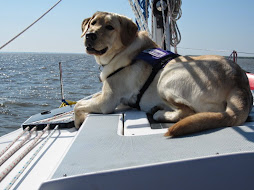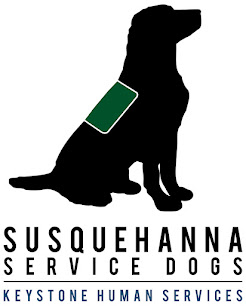
Life happens quickly, and since service dogs accompany their partners almost everywhere, they need to be able to adjust to whatever comes their way. Because of that, service dogs need to have a certain personality to successfully assist their partners.
SSD Fred, SSD Lewey and SSD Rummy are at the kennel for their 12-month evaluation. We evaluate all of our dogs when they’re 8 weeks old, 6 months old and 12 months old. We want to make sure that the dogs are well-suited to become service dogs. A dog that gets very stressed being in public would not be able to provide its partner with assistance, nor would it be fair to the dog to continually take it into very stressful situations. We like to make sure that the dogs will be happy and successful working as service dogs.
Lewey, Fred and Rummy are taking a temperament test, which lets us see their personality. For this evaluation, we’re not as concerned with the specific skills they’ve learned, so there’s no need for puppy raisers to try to cram in multiple training sessions to make sure their dog does a perfect “heel.” Instead, we’re looking at how the dogs handle different situations, especially situations that may be stressful.
The 12-month evaluation helps us determine what direction a dog’s career may take. Some dogs may be spayed or neutered so they can continue in their training to become working service dogs. If we think a dog might be a good fit for our breeding program, we will keep the dog intact until they come into advanced training, where we will evaluate them as a potential breeding dog. Dogs may also be moved into the companion dog program, where they will become a pet that is trained in specific tasks to assist a child or other family member. If we find that a dog is not going to be happy and successful doing service dog work, we may discharge them from the SSD program. Discharged dogs sometimes find new careers. SSD Hawk left our program to join the Bureau of Alcohol, Tobacco, Firearms and Explosives (ATF), and he now works as an explosive detection dog in Jordan. SSD Sunshine also joined the ATF, and we have had several dogs become explosive detection dogs with the UN.
After the 12-month evaluation, we give our puppy raisers a copy of the information we collected in the evaluation, as well as some ideas for how they can continue to work with their dog to help them succeed. We love to see our dogs succeed, whether they continue in our program to become service dogs, join another organization to find a new career that suits their skills, or become beloved pets.









What temperment test do you use?
ReplyDelete